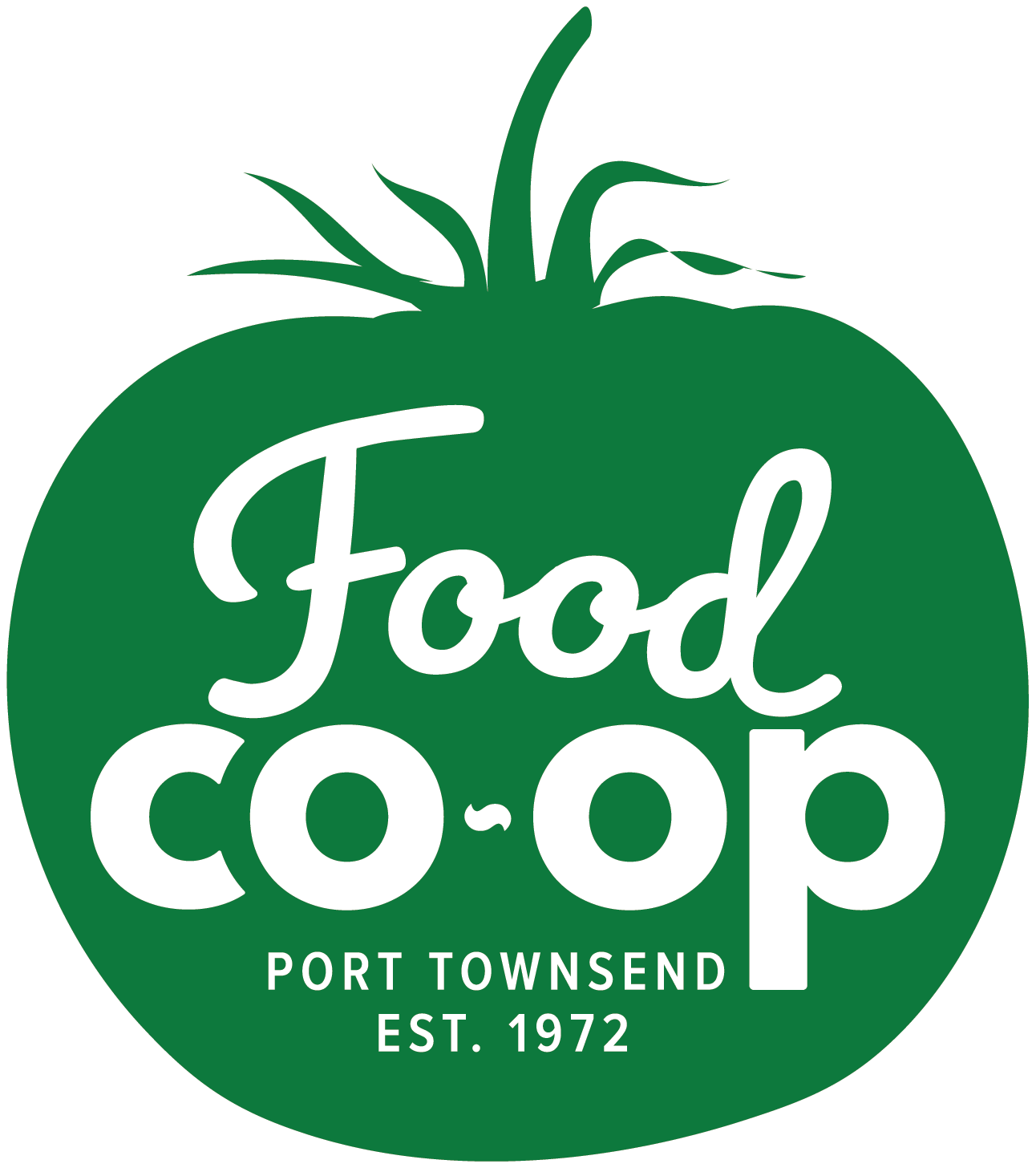The Co-op Farmer Fund - Spring Rain Farm
The Food Co-op Farmer Fund collects donations from shoppers and then divides those funds equally between three local farms each quarter (the farms rotate each quarter). You can donate any amount online at https://www.foodcoop.coop/change-for-change or when you check out at the Co-op—just say you want to donate to the Farmer Fund or Change for Change. The farmers use the funds to provide their food to the Food Bank, the schools, or to subsidize CSAs, etc.
This summer our three farms are One Straw Ranch, SpringRain Farm & Orchard, and Dharma Ridge Farm. Keep checking back for blogs on each of the farms.
SpringRain Farm & Orchard
John and Roxanne run SpringRain Farm & Orchard on the principle that a farm can replicate the intertwined diversity of nature. On the farm, they raise chickens, ducks, and rabbits, grow a huge variety of fruit and vegetables, and maintain hedgerows and riparian buffers around Chimacum Creek, creating habitat for pollinators as well as birds and other native creatures, such as natural pest control animals like snakes and frogs.
All the parts of the farm work together to create a stronger whole. The fowl do pest management as well as provide fertilizer, and their pecking aerates the soil and keeps down weeds. Crop diversity and careful soil management also reduce pest issues. The ducks are great for eating “mummy” blueberries—those desiccated little berries familiar to anyone who has ever U-Picked blueberries—which helps prevent the spread of the fungus. The rabbits do their part by eating the cuttings from apples and willows. Nothing is wasted on such a diversified farm. For instance, berries and delicate crops like basil and arugula, which don’t keep long after harvest, are made into jams and pestos if they don’t sell quickly enough.
Every small farm must find a niche in our very challenging food system, and SpringRain’s specialties are unusual and heirloom fruits and early season veggies (by using unheated greenhouses to extend the season in both directions). John also experiments growing different crops, including some you wouldn’t normally associate with the Pacific Northwest. My personal favorite is fresh ginger, which is usually available in November. It’s so beautiful, with its long pink and green stems. To ensure I have some most of the year, I freeze it and pickle it. And you can make tea from those stems! Another project has been propagating figs. John started small, with twigs, but now has trees, and they hope for great fruit next year.
As part of their ecologically based system, they continually work to reduce their carbon footprint, through projects like building a geothermal greenhouse, using solar power for much of the electricity needed on the farm (including electric farm vehicles!), and sequestering carbon through perennial crops and native tree plantings. And importantly, they sell the food they grow close to home, keeping us supplied with healthy food and reducing our need to buy food shipped in from other states. Their dedication to protecting the environment and supporting their community extends to all aspects of the farm. For instance, in addition to the conservation easement they gave to the Land Trust, they have granted an easement on the property for a local trail, where people can get a glimpse into farming as they bike or walk through.
John and Roxanne began farming near Mt. Vernon in the 1990s, and then bought their 26 acres in Chimacum in 2008, making it into a local farming powerhouse in just a few years. They first farmed with interns through a program called FIELD they helped found—which taught a new generation of farmers and provided much needed help on local farms—but now all staff are paid. In many if not most farming families in the area, one partner (or both) also works off the farm. At SpringRain, John works full-time on the farm, while Roxanne is also a professor and researcher at the University of Washington in the College of Education. Her work focuses on helping children learn to read and write through research on how to best teach these subjects and preparing teachers to do so.
Covid’s long-lasting and far-reaching effects have touched SpringRain as they have all local farms, producers, and small businesses. For instance, inputs have become so expensive that they no longer raise turkeys, because they cannot sell them for what it costs to raise them. The rising cost of food is affecting many people in our area, and like many local farms, SpringRain donates food to those who need it, working with the Chimacum schools and the tri-area food banks. They plan to use Farm Fund donations to help them in this work.
You can visit the farm during the Jefferson County Farm Tour on September 17—https://theproductionalliance.org/events/jefferson-county-farm-tour. Also, check out their website at springrainfarm.org and stop by their farm stand off Rhody Drive, just north of HJ Carroll Park.


